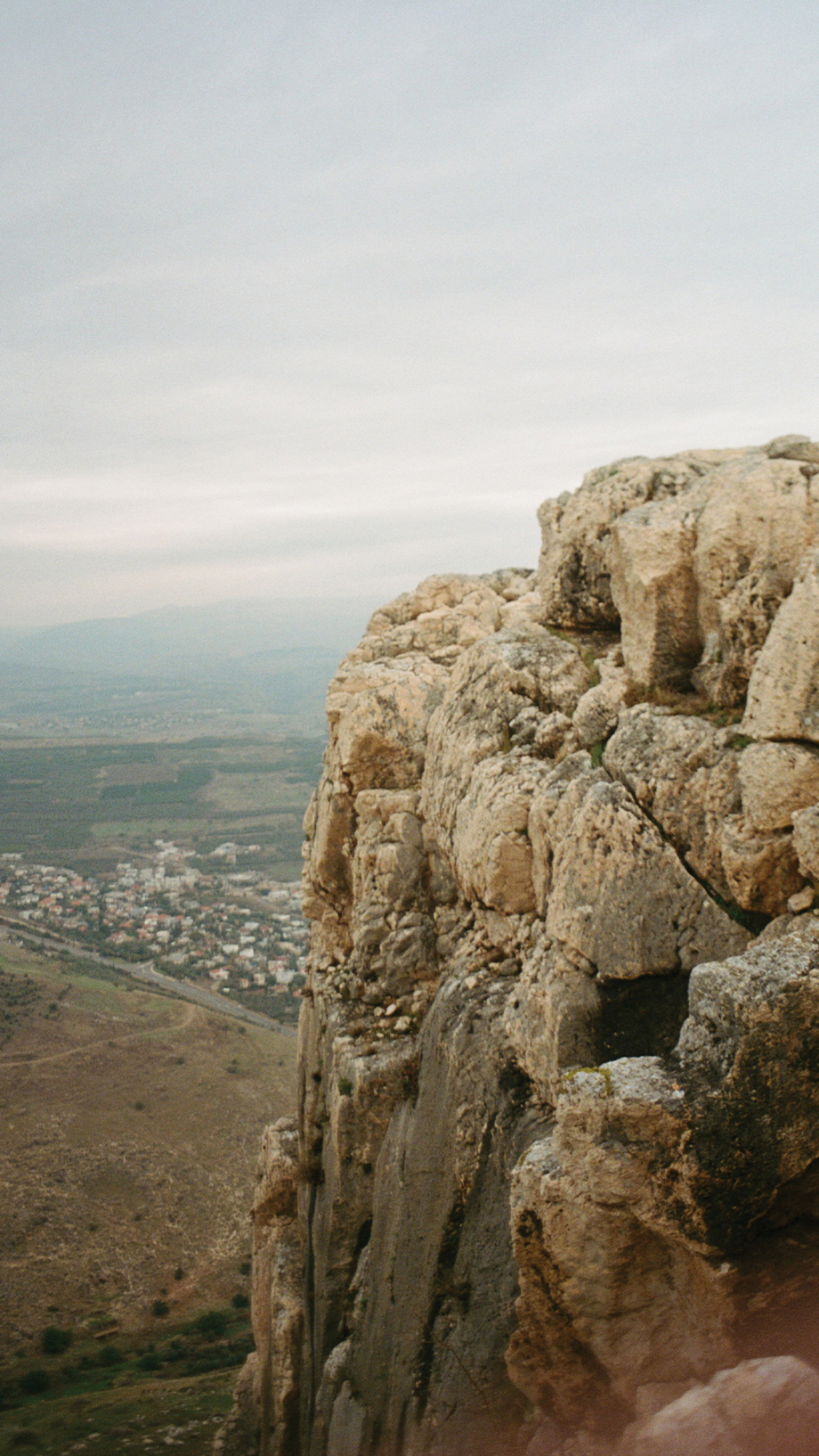I’m fairly confident most of us who grew up in the church have a whole collection of children’s Bible songs in our brains, ready to surface when we read Scripture—at least, I know I do. And every time I read Joshua 6, I hear little kids’ voices from my past, singing:
Joshua fought the battle of Jericho
Jericho, Jericho
Joshua fought the battle of Jericho
And the walls came a-tumblin’ down
But stories like this one in Joshua can be more troubling to read than the song might suggest. Destruction is disorienting when what we long for is peace. I find it helpful to ask what passages like this teach us about God’s character. What does He want us to know about Him?
In this story, we see Joshua lead the Israelites to enter the promised land. It appears this will unequivocally be Israel’s victory tale—until Joshua comes face to face with a mysterious man with a sword, drawn and ready. Whose side is he on: Israel’s or their enemy’s? “‘Neither,’ he replied. ‘I have now come as commander of the LORD’s army’” (Joshua 5:14). This battle, then, is the Lord’s. So, the real question is, whose side is Joshua on?
Some say this figure is an angel, and others believe he is God Himself. Regardless, we know this soldier represents God’s presence. The commander’s first instruction? “Remove the sandals from your feet, for the place where you are standing is holy” (Joshua 5:15; Exodus 3:2–6). And Joshua does that, declaring where his allegiance truly is.
The Lord gives Joshua a set of specific instructions: march around the city walls every morning with priests and trumpets and the Ark of the Covenant, then return to camp without saying a word. No battle cries or attacks. Just presence, day after day.
On the seventh day, Israel let out the final trumpet blasts and Joshua gave them permission to “Shout! For the Lord has given you the city.” (Joshua 6:16) We see Joshua’s utter trust that God will keep the promises to Abraham, Moses, and to him. The stronghold of Jericho’s walls collapses. There’s destruction, yes, but also enduring mercy for Rahab (v.25). Perhaps, then, this is the story of victory within some grander mission—the tale of God’s people who come to possess what God had long-promised them, a gift truly worthy of their shouts.
Whose victory do we long to see? We are called to fight the battles the Lord calls us to, which are “not against flesh and blood, but against…evil, spiritual forces in the heavens” (Ephesians 6:12). God is faithful. If He’s called us to something, He’s already very much in it with us, fighting for what He has promised. And if God is for us, who can stand against us?



Shelynda – thank you for the recommendation on Andrew Judd’s article “Thinking Through Old Testament Violence. It helped me digest and work through some of the negative feelings I have of the violent events that happened in the book of Joshua
I am struggling with the death of every living thing “…men, women, young and old…”. It’s hard for me to swallow that this is direction from our God.
God works through our struggles!
The taking off the shoes “you’re on holy ground” sticks out in my mind. Going into shoeless homes used to be annoying, but now ,after living in an Asian country where it’s the norm, I’ve realized how wonderful this practice is. Now all the shoes with their dirt and germs stays in the hallway while my house feels clean and safe. So it’s a small thing that feels good. In a small way I’m keeping my space and home “holy” if not holy then healthier mentally and physically. It’s not exactly the same but it sticks out in my mind of creating a special space.
Jade, yes I have some of those same feelings. I’m happy I am alive now where I don’t have to make animal sacrifices for forgiveness too. I don’t think I was cut out for OT life
I know this is not the main point of the story but verse 12 “the manna ceased”! I never thought about the fact that they had been eating manna all this time!! That’s probably silly but it never occurred to me. God had been directly providing for them for all those years and the moment they enter His promised land it stops. Promise fulfilled! He had been giving them bland survival food out of His mercy and then when they enter the land they get the bounty of His rich provisions in the place he intended for them to be. Such an amazing metaphor for they way we experience God now here on earth compared to the way we will experience Him in heaven when we enter His true rest!
Great reminder!
The song I hear when I read about Jericho is the Veggie Tales classic… “keep walking but you won’t knock down our wall! Keep walking but she isn’t going to fall!” Haha!
Reading things as an adult yes- I see God’s sovereignty, and I understand better the symbolism. But, like some others, things like the destruction of the children and animals is one of the reasons I tend to read the New Testament and not the old. I don’t like to think of the Jesus I read about in the NT ever saying “well the whole city is bad” and destroy innocent kids and animals. I’m a vegetarian and a lot of the OT makes me sad. But I’m trying to understand that these things were necessary for God’s plan, and that these things do sadden him… but it can be hard to swallow.
But other than that- I pray to have the faith they had, to march around a fortress with no weapons (I was wondering why no Jericho soldiers were even trying to shoot them down or something? But I suppose God didn’t allow them to.. He put fear in them to make them not try?) and know that God will do it- even if it seems like a ridiculous way! ♥️